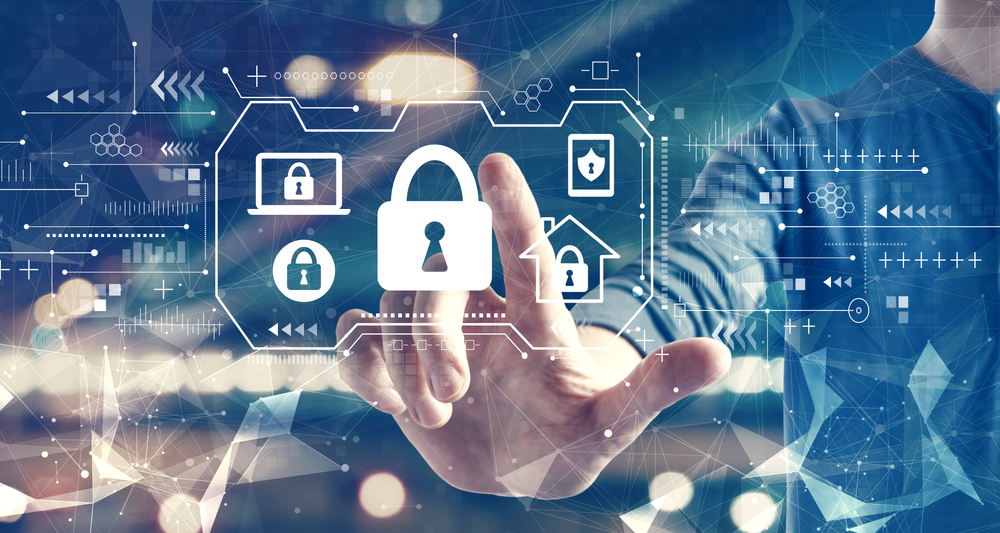Table of Contents
ToggleWhat is cybersecurity and what role does translation play?
Overview
Cybersecurity is the practice of protecting electronic information by mitigating information risks and vulnerabilities. It is a term that covers a range of activities, from installing antivirus software to ensuring that computer networks are physically secure. The goal of cybersecurity is to protect data from unauthorized access, use, disclosure, alteration, or destruction.
Cybersecurity has become an increasingly important issue in recent years as businesses have become more reliant on digital technologies. In order to protect their systems and data, businesses need to ensure that their employees have the necessary knowledge and skills to keep their systems safe. This is where translation comes in. As more businesses expand into new markets, they will need to translate their cybersecurity policies and protocols into different languages so that all employees can understand them.

1. What is cybersecurity and why should we be concerned about it?
Cybersecurity is the practice of protecting networks, systems and data from unauthorized access, disruption or destruction. It is a key aspect of information security and involves a range of activities such as installing antivirus software, monitoring system activity, encrypting data and enforcing secure authentication protocols. Cybersecurity has become increasingly important in recent years due to the rise in cyber threats such as phishing attacks, malware infections and ransomware attacks. Cybersecurity is essential for protecting personal information and sensitive business data from malicious actors.
2. What role does translation play in cybersecurity?
Translation plays an important role in cybersecurity by facilitating the transfer of knowledge between different languages and cultures. Companies that operate globally need to ensure that their staff are familiar with their cybersecurity policies. This is where translation comes in. By translating cybersecurity policies into different languages, organizations can ensure that their staff understand how to properly protect the company’s systems and data from malicious actors. Additionally, translated documents provide a platform for employees to discuss any potential risks or vulnerabilities they may encounter while using the system. Translation also enables companies to communicate with customers in multiple languages, ensuring that customer data remains secure and protected.
3. What challenges do companies face when translating cybersecurity policies?
One of the main challenges faced by companies when translating cybersecurity policies is finding suitable translators who are both technically proficient and have a good understanding of security protocols. The translator must be able to accurately translate complex technical terminology, as well as understand all associated risks associated with the target language. Additionally, they must be able to work in a timely manner to ensure that documents are translated and reviewed before any new systems or policies are implemented. Finally, companies must also keep up-to-date on the latest security trends, as this can affect the way in which their policies are interpreted by different languages and cultures.
3. What are some common myths about translation and cybersecurity that need to be debunked?
A common myth about translation and cybersecurity is that it is only necessary for businesses operating in multiple countries. While it is true that companies with a global presence need to translate their policies into different languages, any business can benefit from having their cybersecurity protocols translated. This ensures that all employees have a comprehensive understanding of the company’s security measures and are better equipped to protect sensitive data. Additionally, translated documents provide an opportunity for staff to discuss and identify any potential risks or vulnerabilities they may encounter while using the system. Finally, translating customer-facing documents can help put customers at ease by providing assurance that their data is safe and secure.
Another myth is that translation technology such as machine translation (MT) can replace human translators when it comes to cybersecurity. While it can provide a basic level of understanding, MT cannot accurately convey complex technical information or understand the nuances associated with different languages and cultures. As such, companies should always use experienced human translators to ensure that their documentation is accurate and up-to-date.
Finally, some people may think that translation is an unnecessary expense when it comes to cybersecurity. However, investing in quality translations can help reduce long-term costs by preventing data breaches due to misunderstandings or misinterpretations of policies. Additionally, translated documents can also help protect customers’ data by providing assurance that the company takes security seriously and has taken the necessary steps to protect their information. This can lead to increased customer loyalty and trust in the brand.
4. How can businesses and individuals ensure that their data is safe from cybercrime and hackers, regardless of language barriers?
The best way for businesses and individuals to protect their data from cybercrime is by implementing strong cybersecurity measures. This includes using a combination of technical controls such as firewalls, encryption algorithms, antivirus software, and user authentication systems. Additionally, companies should also ensure that they have robust policies in place which are translated into the native language of all users. This not only ensures that everyone understands the company’s security protocols but also allows employees to discuss any potential risks or vulnerabilities they may encounter while using the system.
Individuals can also take steps to protect themselves from cybercrime by being mindful of suspicious emails or links, avoiding clicking on unfamiliar websites or images, and ensuring that their accounts are protected with strong passwords. By taking these measures, businesses and individuals can help protect their data from hackers and other cybercriminals.
5. What advice would you provide to companies about translation and cybersecurity?
My advice for companies regarding translation and cybersecurity is to ensure that their policies are up-to-date, comprehensive, and translated into all necessary languages. Companies should also invest in quality translations of customer-facing documents as this can help build trust and loyalty with customers. Additionally, companies must keep up-to-date on the latest security trends as this affects how they interpret their policies across different cultures.
Companies should also use experienced human translators rather than machine translation (MT) software when translating technical documents or any other materials related to cybersecurity protocols. MT may provide a basic level of understanding, but it cannot accurately convey complex technical information or understand the nuances associated with different languages and cultures.
Finally, companies should ensure that their staff has access to appropriate training and resources in order to stay informed about the latest cybersecurity trends. This will help employees identify potential risks quickly and take measures to address them accordingly. By following these steps, companies can ensure they are taking all necessary steps to protect themselves from cybercrime and hackers regardless of language barriers.
6. What are some best practices for protecting your online information in a globalized world?
To protect your online information in a globalized world, it’s important to be aware of the latest threats and take steps to secure your data. This includes using strong passwords that are unique for each account; avoiding clicking on unfamiliar links or images; enabling two-factor authentication where possible; and keeping software up-to-date by downloading security patches as soon as they become available. Additionally, individuals should also consider investing in a Virtual Private Network (VPN) service that allows them to encrypt their web traffic and securely connect to public networks from any location.
When working with companies based in other countries, it’s also important to ensure that you thoroughly research their privacy policies before entering into any agreement. Companies must make sure that their policies are compliant with international data protection laws such as the European Union’s General Data Protection Regulation (GDPR). It is also important to ensure that any third-party organizations or services you use for data storage and/or processing adhere to these regulations.
By following these best practices, individuals and companies can help protect their online information from potential cyber threats. In a globalized world, it is essential to stay informed of the latest security trends in order to proactively defend against any potential risks.
7- Can Shoreline Translation help in this regard?
Yes, Shoreline Translation can help in this regard. With a team of experienced translators, we have the expertise needed to ensure that all customer-facing documents are accurately and culturally translated into the target language. We also offer translation services for legal, financial and technical documents related to cybersecurity protocols. Our services comply with international data protection laws such as GDPR and our expert linguists understand the nuances associated with different languages and cultures. This ensures that your information is secure even when working across multiple regions or countries. Additionally, we provide quality assurance (QA) checks to validate accuracy and maintain consistency throughout the entire translation process, helping you protect your online information from potential cyber threats. By partnering with Shoreline Translation, companies can be sure that their data is secure and remain compliant with the latest international standards.
Conclusion
In conclusion, with the increase in cybercrime around the globe, it is essential for both individuals and companies to take steps to protect their online information. This involves being aware of the latest security trends, using strong passwords and two-factor authentication, avoiding clicking on unfamiliar links or images, and ensuring that data is stored securely by third-party organizations. Additionally, companies must invest in quality translations of customer-facing documents as well as provide training and resources to employees so they can stay informed about potential risks. By taking these measures seriously, businesses and individuals will be better equipped to defend against any potential cyber threats.
In today’s increasingly globalized world it’s more important than ever to be aware of the latest cyber threats and take all necessary steps to protect our online data. This means using strong passwords and two-factor authentication, avoiding clicking on unfamiliar links or images, and ensuring that data is stored securely by third-party organizations. Additionally, companies must invest in quality translations of customer-facing documents as well as provide training and resources to employees so they can stay informed about potential risks. By taking these measures seriously, businesses and individuals will be better equipped to defend against any potential cyber threats.





